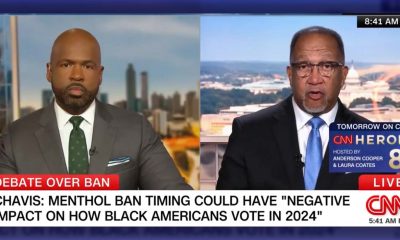Politics
The Truth About Bernie Sanders & Race: Why His Biggest Weakness Could Become His Greatest Strength


Democratic presidential candidate, Sen. Bernie Sanders, I-Vt. speaks at the National Association of Latino Elected and Appointed Officials, Friday, June 19, 2015, in Las Vegas. (AP Photo/David Becker)
(Salon) – Bernie Sanders has enjoyed unexpected success thus far leading up to the presidential primaries. But that success is hampered by a problem — in particular by his campaign’s glaring tone deafness on, or total omission of, matters of race. Writing recently in Vox, Dara Lind pointed out Sanders’ near total blindness to black and Latino issues at his campaign’s opening, with almost nothing expressly addressing matters of racial justice to be found in speeches and campaign literature. Sanders is a white politician from the whitest state in the union, and his intense focus on economic populism sounds incomplete in the post-Ferguson moment. Sanders only recently infused his stump speech with matters of racial justice, and despite his rapid and surprising success, a recent NBC/WSJ poll found him to be what the New York Times called a “virtual unknown among black voters.” Sanders will certainly have to do more to gain the much-needed black vote once the campaign leaves the very white Iowa and New Hampshire.
Sanders’ weakness on race, though, is presented as in relation to frontrunner Hillary Clinton’s supposed superiority on racial issues. The narrative, however accurate, that Sanders is weak on speaking to racial matters requires that we assume Clinton to be attentive to issues affecting minority voters in a way that Sanders is not. A few speeches and poll numbers from June are scant evidence to build this burgeoning narrative to define the two dominant Democratic candidates.
A good place to start, rather than the last month and a half of primary campaigning, might be 1988, a pivotal point in the Democratic Party, which would lose the presidential contest that year and embark on two divergent paths.











































